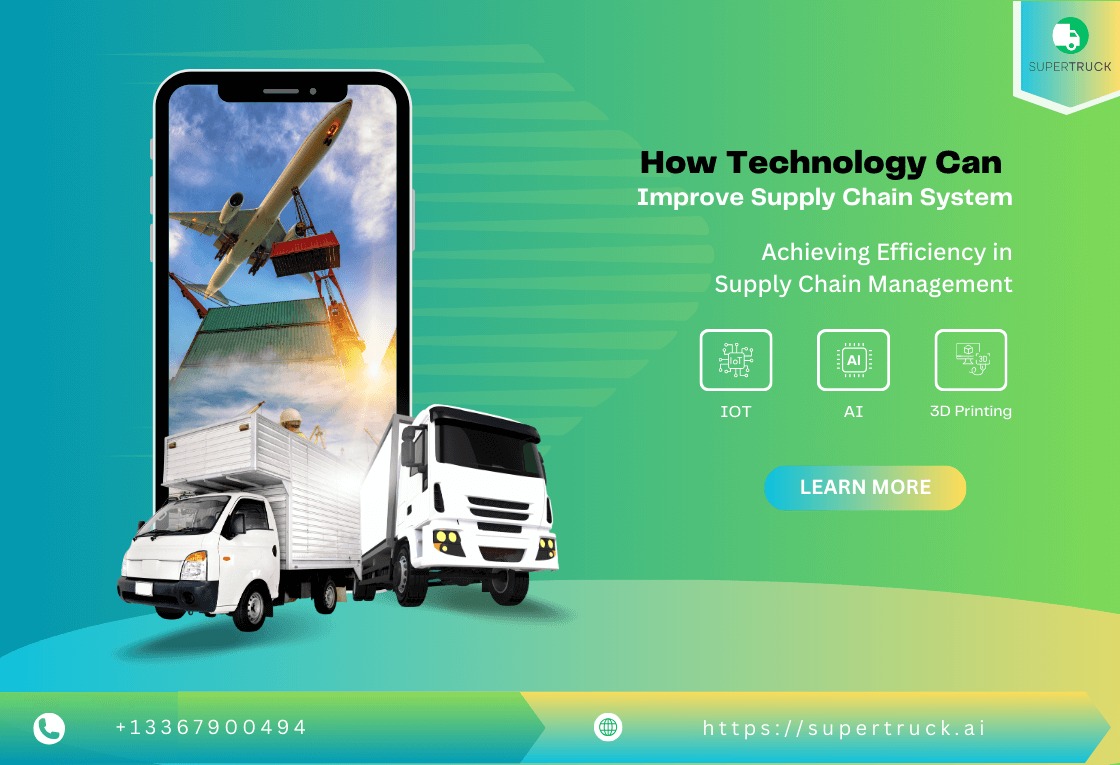
Technology

Globalization today has made the economy more global, supply chains are becoming increasingly complex and vulnerable to disruptions. Factors such as natural disasters, geopolitical tensions, and economic downturns can significantly impact the flow of goods and services. To minimize these risks and ensure business continuity, building a reliable supply chain is important. Technology plays a crucial role in achieving this goal. Below are the points describing how technology can improve supply chain system
The Internet of Things (IoT) is crucial in enhancing supply chain stability by providing real-time visibility into inventory levels, transportation routes, and potential disruptions. IoT devices track the movement of goods throughout the supply chain, enabling businesses to optimize logistics, reduce lead times, and make more informed decisions. By leveraging this real-time data, companies can quickly address issues and adjust their strategies to maintain smooth operations.
Artificial Intelligence (AI) further strengthens supply chain efficiency through its ability to analyze extensive datasets to uncover patterns, trends, and irregularities. This predictive capability allows businesses to anticipate potential risks and minimize disruptions before they arise. AI also aids in optimizing inventory levels, improving demand forecasting, and refining transportation routes. Complementing these technologies, blockchain provides a secure, transparent, and immutable record of transactions, which helps prevent fraud and counterfeiting, and ensures product provenance. Additionally, cloud computing offers the flexibility and scalability necessary for adapting to changing conditions, while 3D printing enables on-demand production of spare parts and components, reducing dependence on traditional supply chains and minimizing the impact of disruptions.
One of the key benefits of technology in supply chain stability is improved visibility. By getting real-time data and advanced analytics, businesses gain comprehensive insights into their entire supply chain. This heightened visibility allows companies to swiftly identify potential issues and address them before they escalate, thereby maintaining smooth operations and reducing the likelihood of costly disruptions.
Another significant advantage is better risk management. Technologies such as Artificial Intelligence (AI) can analyze vast amounts of data to predict and mitigate risks before they occur. By proactively addressing potential threats, businesses can minimize the impact of disruptions and safeguard their supply chain continuity. This proactive approach not only helps in managing risks more effectively but also contributes to a more stable and reliable supply chain.
Technology also drives increased flexibility and cost-efficiency within supply chains. With the ability to adapt quickly to changing conditions, businesses can maintain operations even in the face of unforeseen disruptions. Additionally, technology aids in optimizing inventory levels, improving transportation efficiency, and reducing waste, leading to significant cost savings. Furthermore, advancements in technology support enhanced sustainability by minimizing waste, lowering emissions, and reducing the overall environmental impact of supply chain activities.
No comments yet. Be the first to comment!
05 Aug 2024
14 Aug 2024
14 Aug 2024
14 Aug 2024
16 Aug 2024
20 Aug 2024
21 Aug 2024
22 Aug 2024
23 Aug 2024
25 Aug 2024
25 Aug 2024
26 Aug 2024
26 Aug 2024
27 Aug 2024
28 Aug 2024
29 Aug 2024
01 Sept 2024
01 Sept 2024
02 Sept 2024
03 Sept 2024
04 Sept 2024
05 Sept 2024
06 Sept 2024
08 Sept 2024
09 Sept 2024
10 Sept 2024
12 Sept 2024
13 Sept 2024
07 Oct 2024
17 Oct 2024
18 Oct 2024
22 Oct 2024
29 Oct 2024
05 Nov 2024
06 Nov 2024
08 Nov 2024
11 Nov 2024
19 Nov 2024
20 Nov 2024
©copyright 2024, supertruck.ai